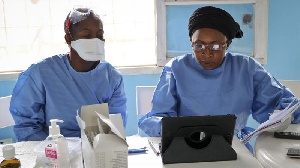Across the globe, numerous countries have recognised the importance of providing free sanitary pads to school girls, leading to empowering success stories that serve as powerful examples for Ghana. In countries where such initiatives have been implemented, the impact on girls' education and overall well-being is profound.
In Kenya, for instance, a government initiative known as the Menstrual Health Management policy has made significant strides in ensuring that school girls have access to free sanitary products. As a result, absenteeism rates among girls have dramatically decreased, with many reporting a newfound confidence to attend school without the fear of managing their menstrual health.
The initiative not only aids in keeping girls in school but also encourages open conversations about menstruation, breaking the stigma that often surrounds it. Similarly, in India, the introduction of the "Period Positive" initiative has provided free sanitary pads to thousands of girls in underserved communities. This program has been coupled with awareness campaigns that educate young women about menstrual health and hygiene. As a result, more girls are staying in school, and communities are witnessing a broader understanding of women's health issues, fostering a supportive environment for future generations.
Furthermore, Scotland recently became the first country in the world to make menstrual products free for all who need them. This groundbreaking legislation has not only improved accessibility but has also ignited a global conversation about menstrual equity, inspiring other nations to consider similar measures. The success of these initiatives illustrates that investing in menstrual health is not merely a matter of hygiene; it has the potential to transform lives, unlock opportunities, and promote gender equality.
These inspiring examples from around the world underscore the vital importance of John Dramani Mahama's promise. By learning from the successes of other countries, Ghana can implement a robust programme that ensures no girl misses school due to a lack of access to sanitary products, thus empowering future generations to thrive and achieve their dreams.
Opinions of Wednesday, 4 September 2024
Columnist: Anthony Obeng Afrane















